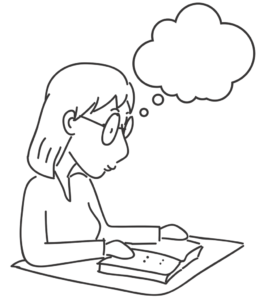Coronavirus, also known as Covid-19, is the viral pandemic that’s on top of everyone’s minds right now, not just in the United States but throughout the world. According to the Centers for Disease Control and Prevention (CDC), Covid-19 is a respiratory illness caused by a new or novel coronavirus. There have been hundreds of thousands of cases confirmed in the United States, as well as thousands of deaths linked to the virus.
Along with the Covid-19 outbreak, many people have faced not only health-related anxiety but anxiety because of job losses and economic worries.
Many people are isolating themselves so they can’t see their extended families, and it’s led to a lot of fear and uncertainty.
When you’re feeling anxious, it’s difficult to sleep, and if you find yourself tossing and turning at night you aren’t alone. Sleep is important, however, for your mental and physical health, and there are strategies you can use to get more sleep even in troubling times.
Corona-Induced Insomnia Is Real
When your life changes and you feel anxious and fearful, it very often means you’ll experience sleep disturbances. This isn’t just true of Covid-19, but throughout our lives. The American Academy of Sleep Medicine defines sleep disturbances as unusual patterns that interfere with your emotional, physical, and mental functionality.
When you’re experiencing anxiety, whether it’s normal based on the situation or is a larger mental health issue, you may feel patterns of arousal that cause problems in your sleep-wake cycle.
Along with sleep disturbances, there are other effects you might notice corona anxiety is having on your life. For example, you may have problems concentrating, your eating patterns might change, or you might turn to drugs or alcohol as a coping mechanism.
There are so many different factors, along with the general anxiety that is contributing to sleep issues right now.
First, most of us are spending essentially our entire day looking at screens. The light from these screens impacts our production of melatonin, which is the hormone we need for sleep. When you’re experiencing a high level of stress, and your mind is constantly racing, it causes an elevated sense of arousal that interrupts sleep.
You may also be off your normal structured daytime routine, and when you’re not following a schedule, it can be tough to fall asleep.
Plus, in addition to anxiety, many people are experiencing low levels of energy and depression during the day so they might sleep too much during the day, making it harder to sleep at night.
Sleep and Your Immune System
What can be especially problematic for people who are dealing with anxiety about coronavirus is the fact that when you aren’t sleeping well or taking care of yourself, it’s negatively impacting your immune system. You may be setting yourself up for a bit of a self-fulfilling prophecy if you can’t get a handle on your anxiety and make healthy choices.
Studies show us that when people don’t get enough sleep or even don’t get enough quality sleep, they are more likely to get sick if they’re exposed to a virus. It can also take you longer to recover from illness if you don’t get enough sleep.
There are reasons for this.
When you’re asleep, your immune system releases something called cytokines, which are proteins.
Cytokine increases are needed to combat both infection and inflammation. When you’re deprived of enough quality sleep, your body may decrease how many of these cytokines it’s making.
When you’re asleep you’re also creating and releasing antibodies that help you combat viruses and other illnesses.
The recommendation is that adults get anywhere from seven to eight hours of sleep a night for their immune system to function optimally. Getting enough sleep also reduces the risk of developing chronic illnesses such as diabetes, heart disease and obesity. These underlying illnesses are associated with worse outcomes in people with Covid-19.
If you can’t get enough sleep at night, you may need to make up for it during the day in the form of relatively short naps. Even just a 30-minute nap during the day might help boost your immune system.
Just keep in mind, sleeping too much during the day can be counterproductive, so don’t let yourself sleep during the day for more than 30 minutes.
Coping with Coronavirus Anxiety
To take care of yourself overall, including getting more sleep, it’s important to find healthy coping mechanisms when you’re feeling stressed.
In general, consider the following ways to deal with anxiety you might be feeling right now:
Take breaks from not only the news throughout the day but also social media. The news itself can be upsetting as can all the arguing and back-and-forth conversations people have about it on social media and news comment sections. Take yourself away from that as much as you can.
Eat meals that are healthy and balanced. Don’t rely on “comfort” foods, even if that’s what you feel like you’re craving. These can make your anxiety worse, and they aren’t giving your body the fuel you need right now.
Do things you enjoy every day, whether that’s sitting in the sun, listening to music, reading, or anything that brings you a sense of joy.
Connect with other people, even if it’s virtually. Set up a Zoom happy hour with your friends, for example, or Skype someone you love.
If you have pre-existing anxiety and it’s significantly worse right now, or your anxiety is getting in the way of your daily life, think about getting help from a mental health professional. Many counselors and therapists already offer telehealth so you don’t have to leave home, or they are starting to offer it now.
You can also work toward gaining a deeper understanding of your feelings.
For example, break down what it is you’re really scared of and what you’re feeling. Are you feeling stressed about the thought of someone you love getting sick, or are you more anxious because you feel out-of-control? Break your feelings down so you can better manage them.
You also have to keep telling yourself that you do have the tools you need to make it through this situation.
How Can You Fall Asleep When You’re Anxious?
You might not even recognize the full extent of your anxiety during the day, particularly if you’re busy working, homeschooling your kids, or doing other things. The full weight of what you’re feeling may hit you at night as you try to go to sleep.
This isn’t something exclusive to coronavirus. Many of us feel our thoughts start to race as soon as the house gets quiet and we turn out the lights.
The following are some ways you can help yourself calm down before bed, and hopefully fall asleep faster:
Do relaxation techniques before you’re ready for bed. This might mean you do a nighttime meditation, some yoga, or some stretching. Don’t put a lot of pressure on yourself to make these techniques perfect.
Create a routine for yourself around bedtime and falling asleep. Your routine may change a bit now since your lifestyle has inevitably changed over the past few weeks.
Give yourself time where you completely shut out the world before bed. Don’t watch the news, scroll Facebook, or do anything else that might stimulate your brain. Don’t do anything that could even potentially cause you anxiety.
Even if you’re watching or looking at something pleasant, stop looking at screens at least an hour before you try to go to sleep. There is research indicating the blue light emitted from electronic screens can cause problems in your body’s natural circadian rhythm, which makes it harder to fall asleep.
Be cautious when it comes to alcohol. Some people help themselves fall asleep by having a glass of wine, but in some cases and especially if you drink too much, it can have the opposite effect. Alcohol can disrupt your sleep and cause you to wake up feeling less refreshed.
Don’t put too much pressure on yourself to fall asleep. If you lay down and can’t fall asleep in a few minutes, you might want to get up and do something else for a minute, rather than just lying there and dwelling on the fact you aren’t sleeping.
Other Sleep Tips
Other things to keep in mind, not just as it relates to corona anxiety but any sleep issues you may be experiencing include:
Try to create a sleep schedule for yourself that you follow even when other things in your routine may be different. Try your best to go to bed at the same time every night and wake up at the same time. If you aren’t following a normal schedule and routine during the day, try to create one. This will then help you better at night because you’ll also be more likely to follow a set sleep schedule.
Exercise regularly each day, but make sure you don’t do so too close to bed. If you can find time to exercise even moderately each day, it can improve your sleep quality significantly.
Try to spend at least 30 minutes outdoors each day, if at all possible, because daylight helps set your natural sleep patterns.
Avoid caffeine well before you plan to head to bed—up to eight hours before.
Make sure you aren’t taking any medicines that could potentially be keeping you up, and if you are, go over the issue with your doctor.
Don’t drink a lot of liquids several hours before you go to bed and avoid large meals that can cause heartburn and digestive discomfort.
Keep your bedroom cool, dark, and quiet. Don’t have distractions like a TV or laptop.
You Can Get Through This
Sleep is important, and your health is important. Prioritize taking care of yourself and your family to the best of your ability during this time. Know that everything you do for yourself is strengthening your immune system, including getting more sleep.
Read original post here!










